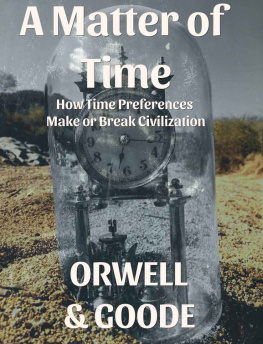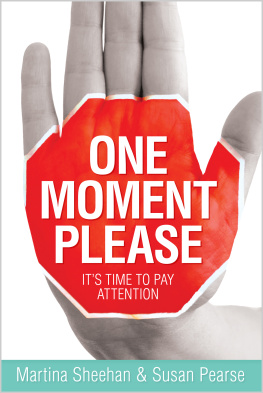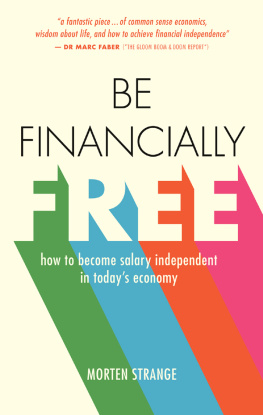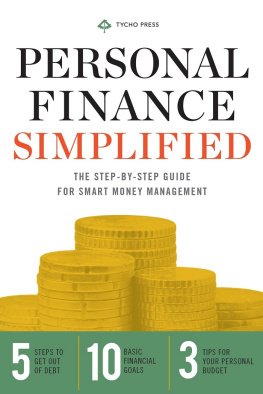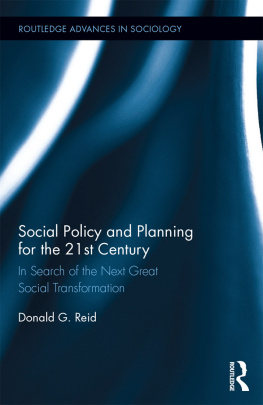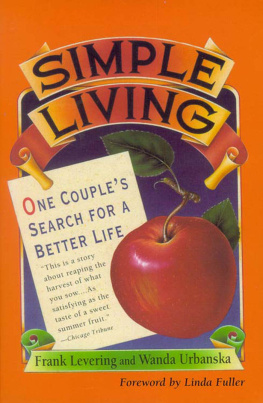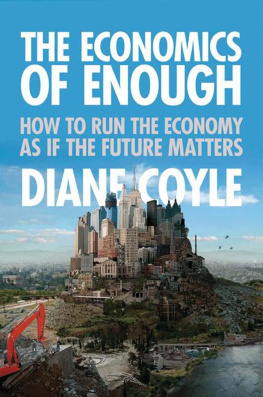A MATTER OF TIME
How Time Preferences Make or Break Civilization
ORWELL & GOODE
Copyright 2019 Orwell & Goode
Kindle Edition
All rights reserved. No part of this publication may be reproduced, distributed, or transmitted in any form or by any means, including photocopying, recording, or other electronic or mechanical methods, without the prior written permission of the publisher, except in the case of brief quotations embodied in critical reviews and certain other noncommercial uses permitted by copyright law.
CONTENTS
INTRODUCTION
Imagine theres no heaven
John Lennon
Other than ones life, the most important thing one can give is timeas time is a portion of ones life. In John Lennons charttopper, Imagine, seemingly lies the Western worlds philosophy in approaching timein living for today. And, as a foundation to this living for today philosophy, there necessarily needs to be a lack of consequences for ones actions; or an illusion of an absence of consequences. The living for today credo is misinterpresented as if tomorrow doesnt come. And while its true that tomorrow hasnt revealed itself to usyetas it doesnt existyetremember: tomorrow eventually comes. Tomorrow always comes. Tomorrow is unforgiving. Tomorrow is pissed because you didnt respect today. Tomorrow is when the piper will be paid. Tomorrow is when all those cheques written by your actions will bounce. And there will be consequences. You, yourself, may not feel the brunt of those consequences, but your children and childrens children will.
To deny tomorrow is to deny reality. Well just have to see what curveballs are thrown at us when tomorrow comes. Accepting reality for what it is can be hard when prevailing social norms dictate a narrativefor political endswhich orbit outside of the realm of reality and live under the guise or disguise of progress. But to deny consequences is to deny reality. It is to act on impulse; to throw caution into the wind. Urinating upwind will have messy consequences. But weve been told that the alarmists who raise awareness of those consequences are at fault. Theyre uncool, bigoted, prudish, boring, lame, unhip, squares. Many are floating, at their peril, in outer space. Those calling them back to earth are the ones in the wrong. Like a parent who rushes to stop their child inserting their fingers in a mains, those hinting at the waywardness of others are balked at. Now, the toddler is armed with an advanced vocabulary and can guilt the parent when the parent attempts to intervene. The parent, may not be able to vocalize their concern for the toddlers wellbeing, but has the toddlers wellbeing at heart. The parent has to stand back and watch the toddler electrocute himself and is called all sorts of names while picking up the toddlers medical bill.
In this day and age, consequences are externalized. You can stick your finger in the socket and somebody else will pick up the tab. And heck, why stop at your finger? There are other appendages you can insert in the socket! Its all good, bro, society has got you covered. And if they dont, enough political activism will ensure that a social program to protect you from the consequences of your actions will appear sooner rather than later.
There most certainly festers a pervasive illusion of a lack of consequences for ones actions: a bloated and sclerotic welfare state; social security and state pensions; the philosophical death of God; the pill; abortion clinics; to name a few. The prevailing view is that all of the aforementioned things are good, positive, and irreplaceable. I would like to suggestperhaps controversiallythat the above are contradictory to a functioning, healthy, and cohesive society. The State, almost inevitably, replaced God with the decline of Christendom and the emergence of the industrialized modern world. But, with this transition from a transcendental being to haughty career bureaucrats, the State has pilfered Gods omnipotence. The State has now become the invaluable mediator and panacea of all social issues or ills. As a way to balance this socially precarious tightrope act, the younger generations in particular, must be kept in a permanent state of childhood. In a quasi-Platonic manner, the State raises the kids, but not for their improvement or transformation into upstanding citizens or fearless warriors; but to create armies of cowardly, quivering, childlike consumerist taxstock. The State is now daddy. But to say daddy is patriarchal and, therefore, problematic. The State has assumed the role of the father in numerous family. The State is the provider and the protector. It projects an illusion of security and socialization of consequence. The State is an aegis to the modern broken family structure. The nuclear family is an existential competitor to modern Nanny State. Even as a provider, the modern State is inadequate. Like a pusher, it keeps its subjects dependent on hand outs. It requires a constant expansion of its tax stock via immigration. Western welfare states are technically insolvent, but they have to bend the rules to continually deny reality like a tarp protecting a house of cards on a windy day. At what point will reality come to collect its dues? Many would be incapable to live their lives unassisted. Power-hungry politicians who promised largesse in exchange for status are long gone. To tell the addict to go cold turkey or else, wont be met with praise, but scorn; even though the addict, in the back of his mind, knows that his addiction will end him. No politician drawing attention to the economic denial of realitynational debts, debt-to-gdp ratio, welfare consumer to producer ratio, etcwould, in a million years, get elected. What happens when the chickens come home to roost?
But it isnt just the State which requires the populace to live for today. Modern multinational corporations bankroll self-serving politicians into office, who in turn enact favorable policies towards profit maximization. Most establishment-approved politicians are in the pockets of megacorporations and other interest groups who strive to cement a certain style of monopoly pertinent to their field of expertise. Megacorporations require fiscal and monetary policies to prompt increased sales, and immigration and social policies to lower wages while boosting productivity. All in all, the consumer, or more precisely, consuming-producer is the one who loses; while being told by the media, entertainment, and the intelligentsia that their lifestyles and the governments policies partially supporting their lifestyles are, in fact, wonderful. But dont rock the boat. Youll be dealt with vitriol and bile. Youll uncover the wrath of social activists wholl aim to silence you by whichever means necessary. And ironically, many of the social activists who will paint you out as irreconcilably evil, despite their utopian views supposedly opposed the Establishments interests, will find themselves being the extrajudicial enforcers for the Establishment.
The unholy matrimony of modern megacorporation and postnational (globalist) Western state has spelled the rapid decline of Western society. The State, in a sense, has become God and the products sold by megacorporation serve little more than temporary fixes for the spiritual void since the philosophical death of God. From such a massive detranscendentalization of values, time preferences have risen, given the fact that life expectancies have spiritually shortened and a greater meaning has been ripped away. Within that loss of meaning, living for tomorrow becomes less appealing. Meaning now comes from without: through material goods and experiences. Value is assigned through pricing instead of something more sentimental or immaterial.
Consequences are good, actually. Without consequences, maturity and wisdom would be impossible. Consequences arent to be feared. Only those who recognize guilt for their actions stave off consequences. Reality has to be reified to fit a lifestyle where actionsfor one recognizes a lingering guiltare not only free from consequences; but also trendy, desirable, and socially ahead of the curve. Those aware of the finite nature of their own physical time attempt to excuse actions which may carry unwanted consequences; and invert preexisting value systems in order to do so. To attempt to minimize the consequences for the actions theyd rather externalize onto society or rationalize through abstraction are the pinnacle of selfishness while unintentionally minimizing their own humanity.

